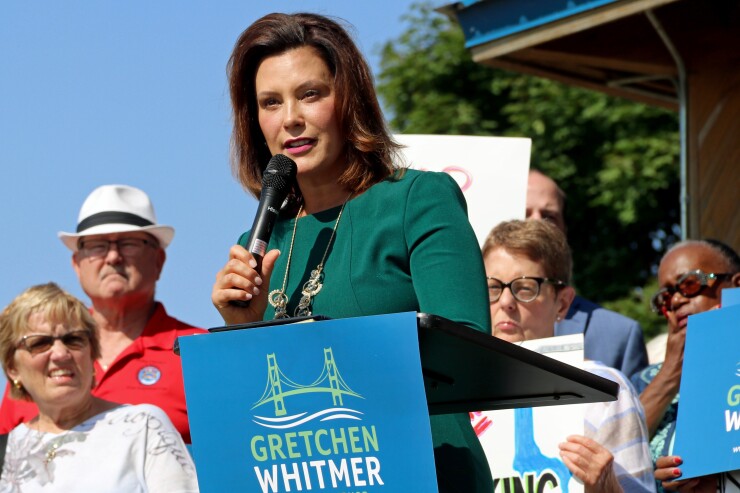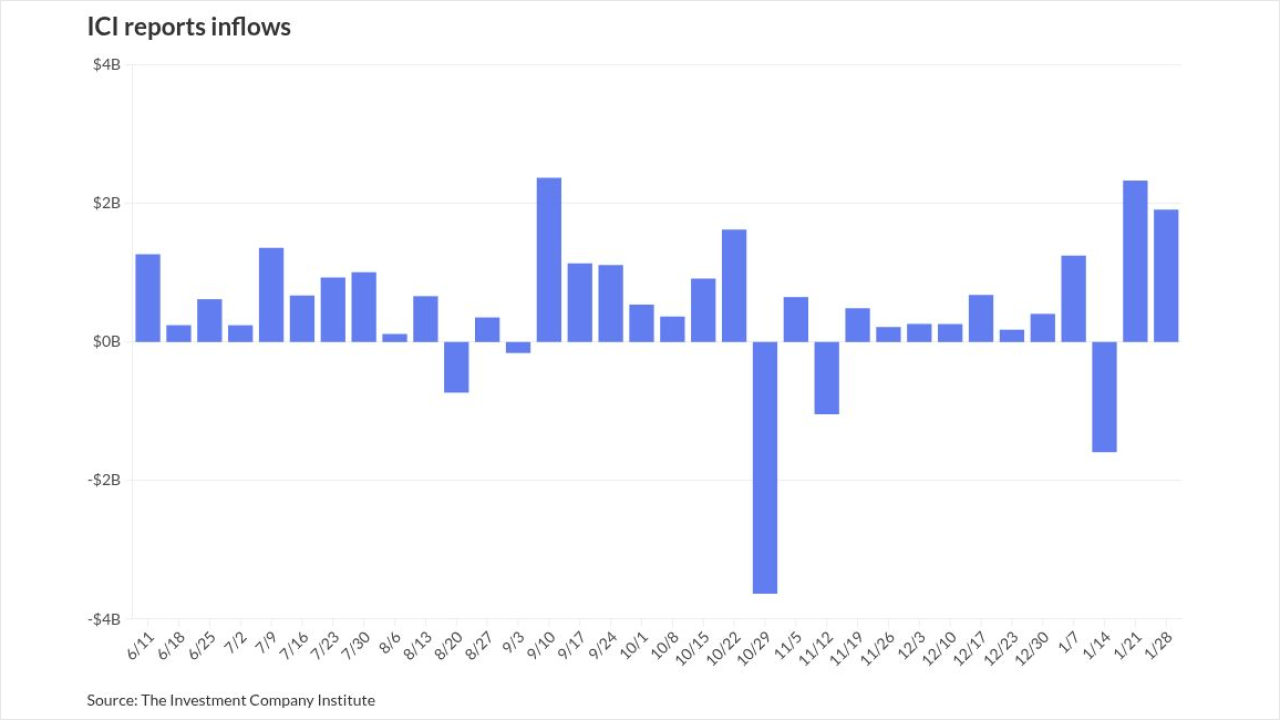Democrats put a dent in the GOP's command of state legislatures and governorships Tuesday as voters in Illinois and Wisconsin rejected Republican incumbents.
In 46 states, 6,000 legislative seats were on the ballot, while 36 states picked governors.

The results stand to influence the municipal market through capital planning and budget actions with potential impacts on ratings and borrowing levels. Longer term, they will count as states redraw legislative districts after the 2020 Census.
In a race closely watched by municipal market participants, venture capitalist and philanthropist J.B. Pritzker, a Democrat and heir to a family fortune, handily beat Illinois Gov. Bruce Rauner, the Republican seeking a second term.
Pritzker will inherit a roughly $1 billion deficit, $7.5 billion bill backlog, $129 billion pension tab, and the weakest ratings of any state.
Pritzker offers only sketchy details on his pension and tax plans while pitching billions in new spending on education and infrastructure.
“While there are no guarantees, a Pritzker win almost certainly means a budget stand-off like that which occurred under Gov. Rauner will not be seen. That alone is rightly enough to justify a view of calmer waters for the state,” but making headway on pensions and the bill backlog are key to the state’s fiscal stability, said Gurtin Municipal Bond Management’s head of credit research John Humphrey.
Illinois House Democrats picked up a handful of seats needed to reach 71, a three-fifths supermajority they had lost two years ago. They already had a Senate supermajority.
Before the election, Democrats held 16 governorships and Republicans 33. Democrats picked up seven seats, with the Georgia race still contested.
Six legislative bodies flipped in favor of Democrats. Republicans lost control of the New Hampshire House and Senate, the Colorado Senate, the Minnesota House, the Maine Senate, and the New York Senate.
In Connecticut, which has seen a series of downgrades amid ongoing budget troubles, the previously tied state Senate went over to the Democrats, giving the party control of both houses and the governor's office, after Democrat Ned Lamont won the race against Republican Bob Stafanowski to succeed Democrat Dannel Malloy.
In Pennsylvania, another Northeast state that has stumbled through budget squabbles and downgrades, incumbent Democrat Tom Wolf easily retained the governors' office but will continue to contend with a GOP-controlled state legislature, despite Democratic gains.
In Minnesota, U.S. Rep. Tim Walz, the Democrat-Farmer-Labor Party candidate for governor beat Hennepin County Commissioner Jeff Johnson, a Republican in the race to replace Mark Dayton of the DFL. His party controls the House, but Republicans control the Senate, which was not up for election this year. State coffers are flush but in past times of divided leadership the state has shut down over budget disputes.
Minnesota is the only state where party control is split between legislative houses.
Wisconsin Gov. Scott Walker, a Republican, narrowly lost his bid for a third term to Tony Evers, state schools superintendent. Evers has said he wants to funnel more state dollars to education and transportation, cut middle class taxes, reverse the state's controversial Act 10 legislation that limited local collective bargaining rights and renegotiate state tax breaks offered to Foxconn Technology Group for its new plant. The Democrat, however, faces a tough road as Republicans retained their legislative majorities.
Gretchen Whitmer, a Democrat, was elected Michigan governor, retaking the office for her party after eight years of Republican control. The former state senator defeated Republican Bill Schuette, the state attorney general. Whitmer said she would push for more funding to fix the state’s roads and protect expanded Medicaid coverage for lower-income residents. Republicans still control the legislature despite Democratic gains.

Republicans lost their narrow grip on the New York State Senate, handing Gov. Andrew Cuomo, a Democrat who cruised to re-election, a full Democratic legislature to work with.
In Maine, Democrats gained control of the state legislature and governorship. Attorney General Janet Mills, a Democrat, will be the state’s next governor after defeating Republican businessman Shawn Moody and independent candidate Terry Hayes, the state treasurer. Mills will replace term-limited Republican Gov. Paul LePage, who often clashed with lawmakers on authorizing voter-approved bonds.
New Hampshire Democrats took control of both chambers in the state legislature for the first time since 2012 while incumbent Republican Gov. Chris Sununu won re-election.
In Kansas, voters slammed the door on the Gov. Sam Brownback era, electing Democrat Laura Kelly over Trump ally Kris Kobach. During the Brownback era, the Republican governor ushered in an era of deficits brought about by tax cuts.
In New Mexico, U.S. Rep. Michelle Lujan Grisham returned the governor's mansion to Democratic control after eight years under Republican Gov. Susana Martinez,
In Colorado, Democratic U.S. Rep. Jared Polis defeated Republican Walker Stapleton for the governor's seat being vacated by two-term Democrat John Hickenlooper, and his fellow Democrats control the General Assembly after taking control of the Senate.
In Ohio, Republican candidate Mike DeWine will be next governor, replacing Republican Gov. John Kasich who was term-limited. DeWine, the state’s attorney general, defeated Democratic candidate Richard Cordray. Republicans retained control of the legislature.
Iowa Gov. Kim Reynolds won a full term. The Republican had been elevated to the office after President Trump named Gov. Terry Branstad ambassador to China. Reynolds enjoys GOP legislative majorities. Iowa Treasurer Mike Fitzgerald, a Democrat whose office manages state debt, won a 10th term.
In Nebraska, incumbent Pete Ricketts, a Republican, was re-elected to a second term. In South Dakota, Republican Kristi Noem will become its first female governor.
In Arizona, Arkansas, Texas Oklahoma and Arkansas, Republicans retained control of the governorships with little difficulty. In Oklahoma, Tulsa businessman Kevin Stitt will succeed term-limited Gov. Mary Fallin.
Republicans took control of the Alaska House and Republican Mike Dunleavy won the governor's office, previously held by independent Bill Walker.
Democratic front runners Gavin Newsom and Fiona Ma won the California governor’s and treasurer’s races and Democrat Betty Yee won re-election as controller.
Incumbent Democrat Kate Brown edged out Republican Knute Buehler for Oregon governor as Democrats claimed supermajorities in the legislature.
Nevada elected Democrat Steve Sisolak over Republican Attorney General Adam Laxalt to replace Republican Brian Sandoval as Democrats also solidified control of the state legislature.
Two new Northeast state treasurers also emerged from Tuesday’s elections. Democrat Shawn Wooden, a former Hartford City Council president and investment attorney, won an open election against Republican Thad Gray to replace Denise Nappier, who chose not to run again after 20 years. In Delaware, Democratic challenger Colleen Davis, a healthcare consultant, ousted Republican State Treasurer Ken Simpler.
In the Southeast, South Carolina Gov. Henry McMaster, who has called for the sale of the state-owned Santee Cooper utility, won a full term.
Georgia’s nationally watched race for governor remains tight. Republican Brian Kemp maintained just 50.36% of the vote over Democrat Stacey Abrams early Wednesday. Abrams, who could become the nation’s first African-American female governor, wouldn’t concede with absentee ballots outstanding and voting in one county incomplete. If those change the final tally, a runoff could be required Dec. 4.





